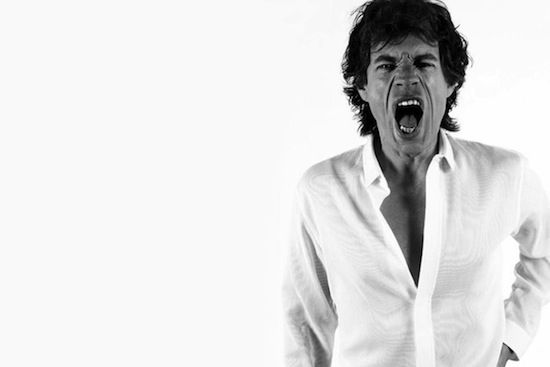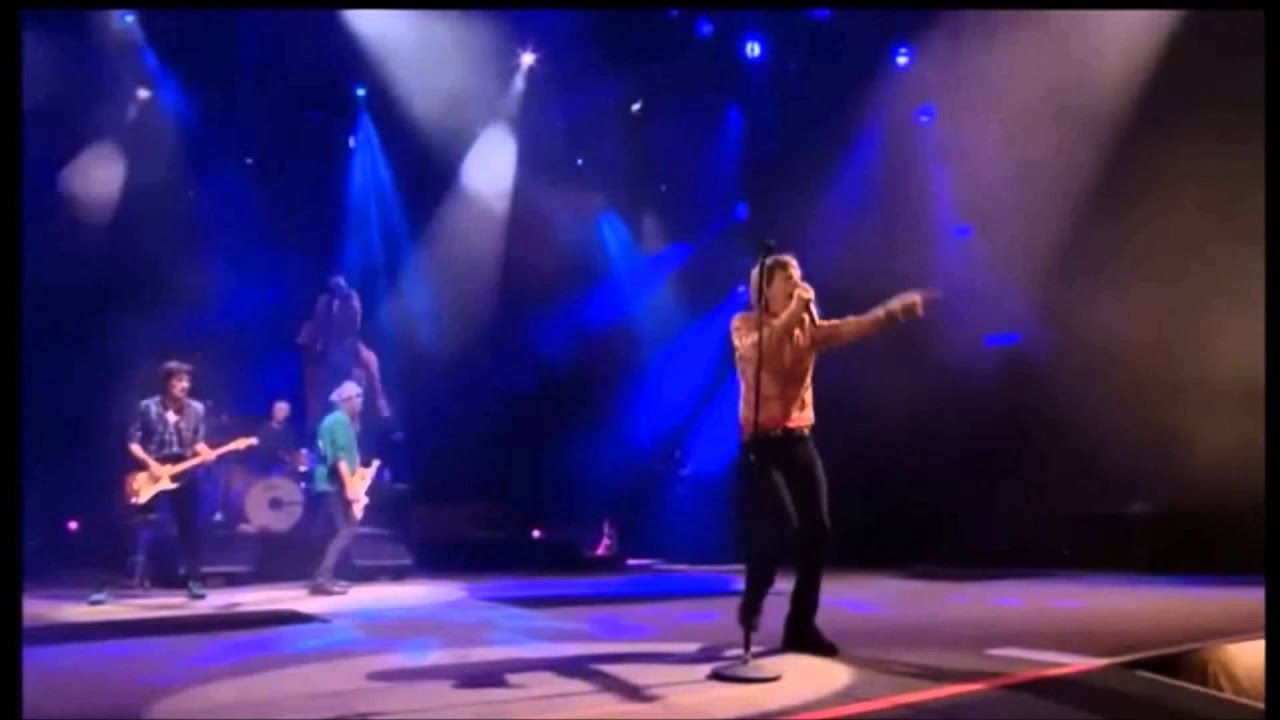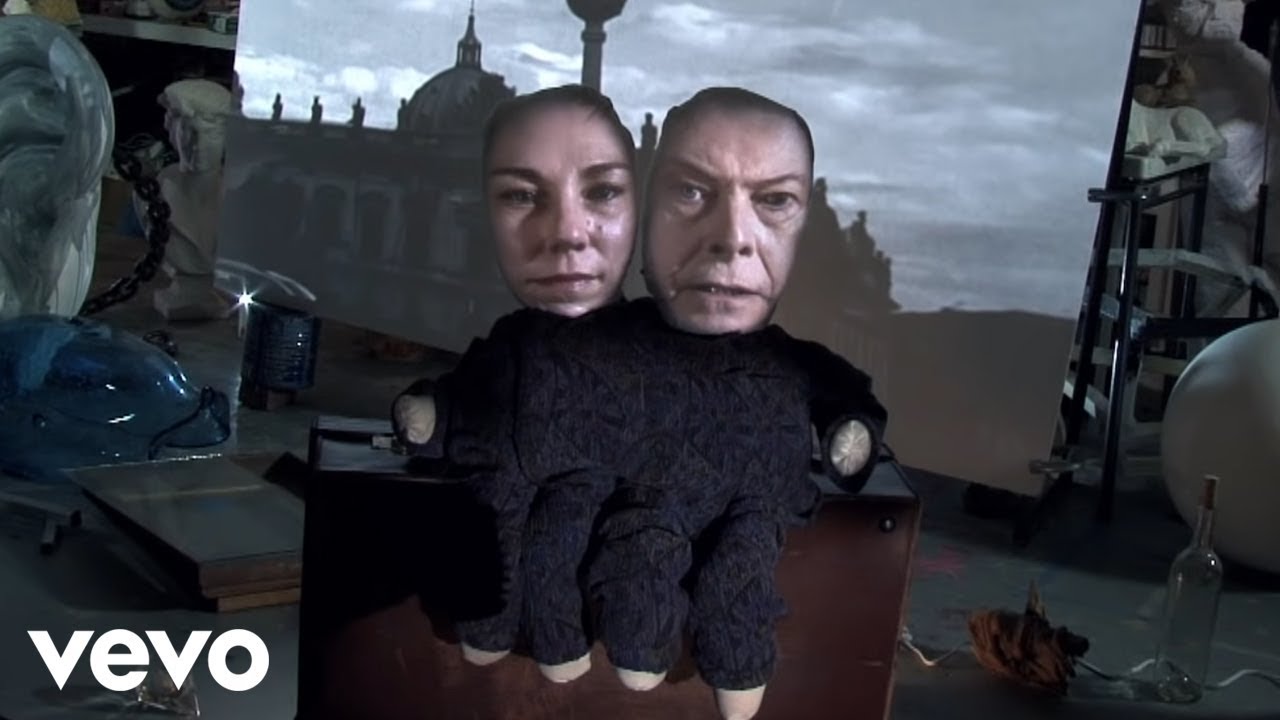Most of my predictions as a music journalist have come to grief in the near three decades I’ve been practising the art but one at least, which I first made 25 years ago, has successfully come to pass – that rock groups would still be touring in their 70s. Others demurred at this – we’re talking about a time when a 45-year-old John Peel was considered unfeasibly senior still to be hauling his old bones to Fall gigs, like some old tennis pro ill-advisedly hitting the tournament circuit for yet another hurrah. This was a time when rock & roll still just about considered itself youth culture and the first crease had yet to be ironed into its jeans. In the 80s, the mid-20s was considered some significant cut-off point. When Q magazine was launched, it was aimed at what it considered an audaciously senior, Jeremy Clarkson-style demographic – the over-25s. Still earlier, it was still worse. In 1964, Melody Maker ran a concerned editorial about the ageing Beatles drummer entitled “Ringo – Too Old To Rock At 24?”
Throughout most of its live fast, die young history, much of which coincided with the Cold War, rock music never really troubled to contemplate its future seniority, assuming it would never happen. This week, however, as he was always going to, Mick Jagger has celebrated his 70th birthday. And this year, as they were always going to be, The Rolling Stones were on the road, their Glastonbury date hailed as a “triumph” in all quarters.
Much as it’s probably 30 years since Pete Townshend first had to field some wry jibe about his “hope I die before I get old” lyric, so The Rolling Stones have been enduring “Strolling Bones”-type quips about their supposed agedness for decades. The Daily Mail printed some typically waspish close-ups of Jagger’s droopy neck flesh and close-ups of Keith Richards, who admittedly does like look his own, latex Spitting Image puppet these days, but then that alone shows how he has defied and outlived parody. However, the Mail showed themselves to be as out of touch as an embarrassing Dad in their old fashioned barbs about the group’s age, an issue which the more hip mainstream has long since got over.
That the Rolling Stones were always going to keep working was evident from the world of jazz and the precedent its most senior members set as that genre reached old age. Duke Ellington recorded into his early 70s (check 1971’s The Afro-Eurasian Eclipse) and made his last live appearance just before his death in 1974. Sonny Rollins, the “saxophone colossus” is still honking strong aged 82. Or, there’s this guy, about Jagger’s age when he staggered onstage to put in this palsied performance.
There are countless examples from the avant-garde world that old age doesn’t dim the creative powers and reduce them to a twilight of tea and biscuits, Max Bygraves and the ‘Semprini Serenade’. Musique concrète composers like Luc Ferrari, Henri Pousseur and of course Karlheinz Stockhausen were still operating on the ultra-radical fringes of music before they died of eventual, natural causes early in the 21st century. The same can be said of Derek Bailey, vigorous and active and expanding the guitar lexicon way beyond the confines of rock until his death, aged 75.
Quite simply, music isn’t sport. You can perform to the physical level required well into your senior years. Your faculties, health permitting, are quite capable of seeing you through the flails and thrashes and moves like Jagger. This is an extremely gratifying spectacle because, of course, the rock audience itself is growing older year by year, and is most pleased to see that while death will claim us all, old age (as lived out by previous generations sometimes from about their mid-30s onwards if old photos are anything to go by) need not. And so it will go on. I predict rock groups touring and working into their 80s, maybe 90s, with the 70+ brigade, currently a relatively select group, a commonplace band filled out by the likes of Prince, Elvis Costello, Dexys. No one stops. Why would they? Why should they?
As rock & roll grows older, then, and its audience with it, there is a generation of superstars who no longer have to experience the sort of jeering they once had to undergo, derided as senile, past it and out of touch when still in their mid-30s. “The Stones should split. They’re no longer valid,” said Tom Robinson – in 1978. Paul McCartney spent most of the 70s and 80s being teased mercifully for his often infantile, saccharine and abysmally banal output, so much so as to goad him into a furious rant about being “rapped on the knuckles like a schoolkid” every time he released an album. David Bowie’s efforts to maintain his grip on the zeitgeist in the 80s with Tin Machine earned him similar derision. That decade was also a tough one for Bob Dylan, whose successive religious conversions in the early 80s, followed by his stint with The Traveling Wilburys suddenly saw him cut a rather doddery figure.
Only in middle age did they have to endure these trials, the accusations of old age. In their actual old age, it’s a different story. Today, McCartney is enjoying a renewed spate of hip attention, a revival that was set in train slowly but surely with his collaborations with Elvis Costello in the late 80s. He was recently doing the YouTube rounds, performing ‘Helter Skelter’ with ex-Nirvana members, as well as being feted to the point of genuflection on the US Stephen Colbert show. Meanwhile, no major event can be allowed to pass without his being asked to top the bill with a rousing, infinite version of ‘Hey Jude’. You sense that McCartney, beneath his faux-affable exterior a proud and prickly alpha male sort, is loving and lording every moment of it. Gone are the days of mocking him because of ‘The Frog Chorus’. Macca, The Stones, Springsteen, Dylan, are hailed by a once-sceptical critical consensus as living deities, national treasures. Others abide our question; thou, oh Rushmore-style Rock Gods, are free.
Is this a problem? Well, kind of. Except that it’s not about age, exactly, or some, simplistic “the old should retire with dignity and give way to the young” thing. That’s not really the issue. It’s not so much that the old guard of artists have necessarily redeemed themselves, or rediscovered their old powers, it’s that the critical mood has changed. The iconoclastic scepticism of the punk generation gave way, in the conservative, nostalgic, Oasis-dominated 1990s to a reverence for wealth, prestige, superstardom, a longing for the old days of mega-mania, rather than interesting, diverse, locally sourced clusters of new music. This has gradually intensified, as a sense grows that the mainstream rock narrative has run its course, the smoke is clearing, and we can look back at the legends of yore with renewed biographical clarity, their often trite sayings and doings regarded with utter fascination, their present day activities reviewed with slavering, uncritical awe.
Let’s take The Stones. I don’t doubt for a moment that, being the Stones and having the Stones in their bones, they put on as good a performance at Glastonbury as everyone said. That Michael Eavis should describe it as the “high point” of Glastonbury’s 43 year history, during some of which time it had genuine, countercultural pretensions, seems a bit sad. So carried away is everyone by the “triumph” that there is an apparent willingness not just to waive but to wallow in The Stones’ current aristocratic shenanigans. We are invited to goggle, rather than gob as we read that “Sir” Mick Jagger and co followed up their set of existentially ravenous, combative rock classics by booking out ten rooms at Babington House country club and invited a string of A-listers to join them, ferrying guests from the back stage area by helicopter, including Coldplay’s Chris Martin, supermodel Kate Moss and her husband Jamie Hince, designer Stella McCartney and Jarvis Cocker, models Alexa Chung and Jodie Kidd also joined the band’s families backstage. Or that Prince Harry was present backstage at Glastonbury. Hello! Ok!
The obvious dissonances at work here were evident, too, in another “triumphant” gig from one of rock’s great elders – Bruce Springsteen. I saw him at Stratford recently play in mostly daylight, as in an apparently crucial feat of quantity and stamina, he insists on playing for three hours and had to start early in the Summer evening. His devotees loved it but I was left cold by the collective pretence, of both Springsteen and his fans, that this anonymous, makeshift venue on the dusty periphery of the Olympic site was actually an intimate back bar in New Jersey. The fact that his stage presence was framed by the conspicuous, ubiquitous corporate hoardings of Hard Rock and Vodaphone only made it worse. Sure, if ultra-predictable chord changes are your thing, then the music was fine, but was I the only person, either onstage or lapping it up, remotely bothered by any of this?
Of course, whenever one of rock’s elderly eminences deigns to tour, such cavilling is swept aside in the rush to Ticketmaster. This is bolstered, or perhaps acquiesced to, by a music press which is, if anything, more inclined to put The Beatles/ Stones/ Dylan on the cover than it was in the heydays of those artists. Any excuse will do. And so, a disproportionate sense of their importance has developed, thanks to the increased conservatism of industry, music press and audiences alike in the 21st century. The Beatles and The Stones were great – but not so great as to deserve taking up such a vast and grotesquely uneven amount of media attention, at the expense of a vast range of other artists, past and present. They’re probably more important than Big Star and Pere Ubu, but not the thousands of times more important that their sales and media column inches would suggest. Plus, a rock life spent ignoring Big Star and Pere Ubu and listening to The Beatles and the Stones loads of times over and over is a blinkered and diminished one.
David Bowie’s return to the fray represents a notable and graceful exception. That his new single earlier this year fell to Earth out of nowhere, free of the usual build-up or calculated industry leaking, was a dizzying feat of discretion and also lent lustre to the sense that he was genuinely a rock & roll creature from above and beyond. Its subject matter demonstrated a wisdom and a consciousness about himself and his relationship with, and distance from, his own legacy which seems beyond the ken of the veteran superstar set, who often given the impression of rocking on oblivious. Conversely, he didn’t attempt to “do dubstep”, or anything so daft, realising he is past all that, and that his enduring strength is as a classical songwriter. So far, all rumours of a tour have been flatly denied and, although a Bowie show could be quite a thing, I find myself hoping he stays true to his word, remains aloof from the nostalgia cavalcade.
And so, happy birthday, Mick Jagger. You truly deserve your slice of cake. You are, after all, Fucking Mick Jagger. Never mind “Sir” Mick Jagger; you should replace the “Sir” with “Fucking” and insist, at all times on that far more appropriate mode of address. You should have a party. Only, don’t invite the Kate Mosses, Chris Martins and the rest of the showbiz kids – you know they don’t give a fuck about anybody else. Invite your own contemporaries, who deserve their slice of cake also. Invite Leonard Cohen. Invite Alan Vega, who just turned 75 but whose group Suicide have never enjoyed the good commercial fortune their innovations deserved. Invite Hans-Joachim Roedelius, whose birth in October 1934 is the very first event on the krautrock timeline, whose work with Kluster and later Cluster is foundational in the histories of noise and ambient respectively, and who is still cutting it, as shown in his very latest release Tiden. Invite Irmin Schmidt and Jaki Liebezeit, surviving founder members of Can, whose continued inventions (on the Cyclopean EP for example) are a discreet counterpoint to Kraftwerk’s more widely feted Touring Synthpop Museum. Invite Joni Mitchell, who might have a thing or two to say about why women aren’t necessarily granted the same indulgence to carry on being rock stars into their senior years as their male counterparts. Happy birthday and rock on – we know you will.







